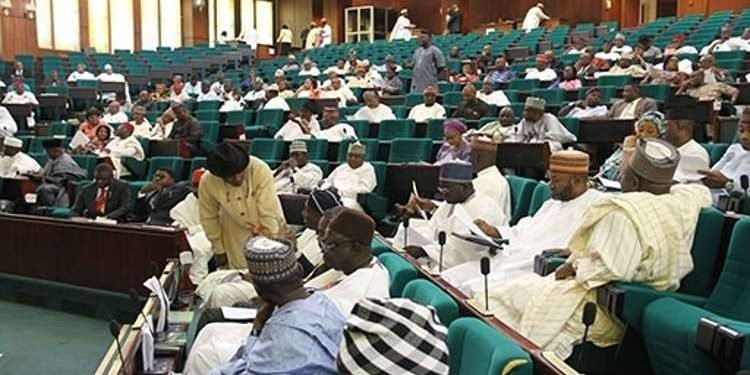Posted on Mar 20, 2020
The House of Representatives on Thursday resolved to probe the operations of the Federal Mortgage Bank of Nigeria (FMBN).
The House mandated its Committee on Housing to investigate the structure, operations and challenges facing the bank and report back within four weeks for further legislative action.
The motion moved by Rep. Julius Ihonvbere and titled “Need to Investigate the Activities of the Federal Mortgage Bank of Nigeria” was received, passed and referred to House Committee on Housing.
While arguing the motion, Ihonvbere noted that by virtue of Section 5 (a, e-f) of the Federal Mortgage Bank of Nigeria Act, Laws of the Federation of Nigeria, 2004, the bank was mandated to provide long-term credit facilities to mortgage institutions in Nigeria at such rates and on such terms as may be determined by the board in accordance with the policy directed by the Federal Government.
It was also to collect, manage, and administer the National Housing Fund in accordance with the provisions of the National Housing Fund Act; enter into any transaction, which, in the opinion of the board, is necessary to ensure the proper performance of its functions under the Act.
The lawmaker also noted that according to a newspaper report of Wednesday, February 26, 2020, the FMBN has over N360 billion in its kitty yet, only an insignificant 63, 000 out of the five million contributors have been able to access the fund over the past 28 years.
Ihonvbere further expressed worries that over 4,647,000 contributors are left at the mercy of shylock landlords all over Nigeria, largely due to no fault of theirs, but the bureaucratic nature and slow pace of doing business in Nigeria.
He expressed concern that the bank has only been able to deliver a paltry 28, 000 housing units across the country in the face of the ever burgeoning demand for housing in Nigeria.
Ihonvbere said he was aware that the process of urbanization is an ongoing trend in developed and developing countries, with urban centres in Nigeria experiencing rapid and continuous growth over the years, due to rural-urban migration.
“There has been inadequate infrastructure to meet the needs of the increasing urban populace as studies have shown that about 75 per cent of urban settlers live in slums and improper housing, which is antithetical to the Sustainable Development Goals (SDGs) of enhancing human dignity,” Ihonvbere said.
He said he was disturbed that the FMBN in spite of the large sums of contributors’ money and the force of legality at its disposal, has failed to deliver on its mandate of providing housing for Nigeria.
